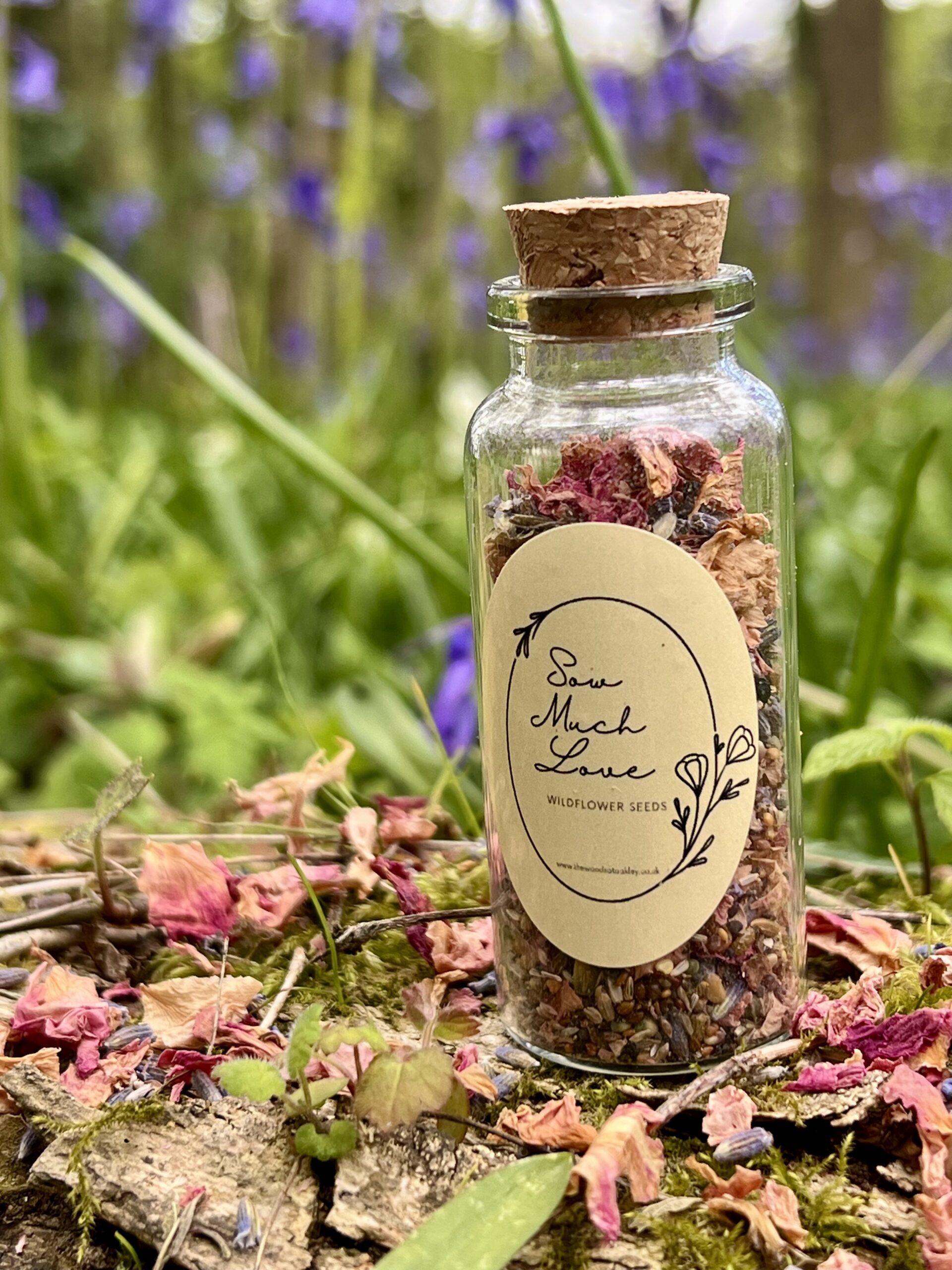May, 2024
Help create biodiverse habitats with “sew much love” wildflower confetti
The delightful bluebell carpet which covers the woodland floor in the Woods at Oakley is a quintessentially British springtime scene. These delicate wildflowers are part of our natural heritage with almost half of the world’s bluebells being found here in the UK. But they are under threat, bluebell colonies take many years to establish and many more to recover after footfall damage. If their leaves are crushed, they die from lack of food as they can no longer photosynthesise. These precious wildflowers are considered so important for our ecosystems that they are a protected species in the UK, and it is illegal to intentionally pick, uproot or destroy them.
Native British wildflowers are in decline around the country due to building development and intensive farming methods. Since the 1930s we have lost 97% of UK wildflower meadows and they are now one of our rarest habitats.
Wildflowers provide a valuable food source for insects, mammals and birds. Pollinators such as bees, butterflies, flies, moths, wasps, and many more are dependent on them for survival. In a reciprocal relationship, 60-80 percent of the worlds flowering plant species rely on insects to pollinate them including many of our food crops. Furthermore, insects that feed on wildflowers provide a food source for other animals helping to reduce the number of pests like aphids that attack crops. In short, the more wildflowers there are, the greater the diversity of pollinators and the healthier our crops are.
The complex root system of wildflowers also improves soil structure and can help it stay stable during times of heavy rainfall reducing the risk of flooding. But aside from the environmental benefits, let’s not forget the boost that spending time amongst beautiful wildflowers can have on our wellbeing. But don’t just take our word for it, there is now a growing body of empirical evidence that suggests that nature has benefits for psychological and physical well-being. It has been reported that spending time in nature can improve attention, lower stress levels, boost mood and can even enhance cooperation and empathy.
The good news is that the government has responded to the worrying decline of biodiversity in England and has introduced the Biodiversity Net Gain (BNG) scheme. The proposed rules suggest that all new roads, houses, and other building projects must achieve a 10% net gain in biodiversity if nature is damaged. So, if a nature area is bulldozed to build an apartment block the developer must recreate a similar habitat, plus 10% either onsite or locally.
But whilst we cannot create wildflower meadows in towns and cities, we can grow wildflowers in small spaces which is still important. They provide vital support for pollinators in areas where food and shelter are scarce and can enhance our own health and wellbeing.
In partnership with Bright Seeds, we have developed “Sow much love” confetti, a unique blend of dried petals and native wildflower seeds that are harvested from local meadows. Whether you choose to scatter it on the newlyweds on their wedding day in the woods or take it home to plant in a pot or your garden, you are spreading your love for our precious natural world.
“Sow much love” is available to purchase directly through us for £6 a bottle.

